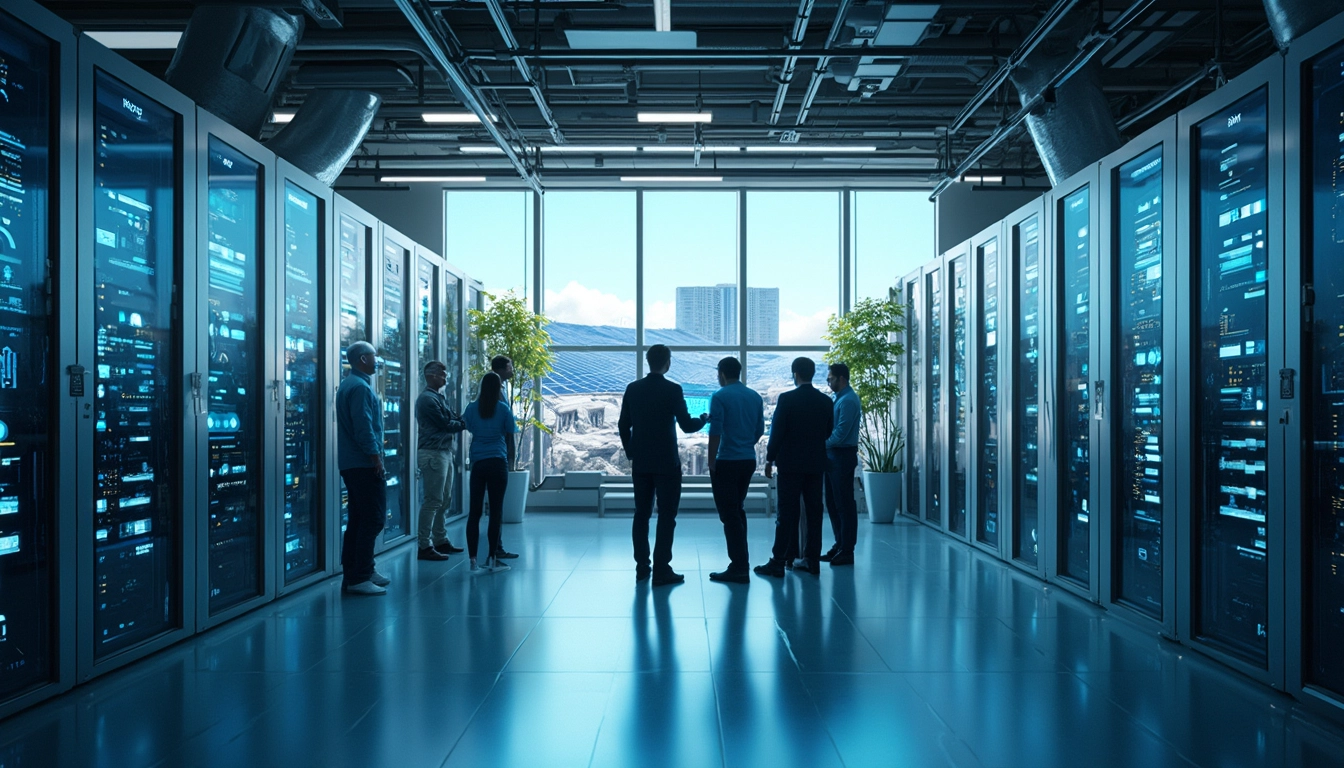
Microsoft Invests 80 Billion Dollars in AI Data Centers Development
Microsoft’s ambitious $80 billion investment in AI-enabled data centers underscores a strategic push to dominate the AI and cloud computing markets. However, the tech giant has acknowledged concerns that this surge in AI development might be adversely affecting our cognitive abilities.
Table of Contents
Key Takeaways
- Massive investment highlights Microsoft’s commitment to AI leadership.
- Focus on generative AI tools like ChatGPT and DALL·E.
- Significant economic impact in key U.S. regions.
- Balance between AI growth and cognitive skills preservation.
- Commitment to sustainability with renewable energy initiatives.

Microsoft’s $80 Billion AI Data Center Investment: A Double-Edged Sword
Microsoft is set to invest a staggering $80 billion in AI-enabled data centers for the 2025 financial year, marking a significant jump from the $53 billion capital expenditure in 2023. This investment is primarily aimed at supporting the training of AI models and the deployment of AI and cloud-based applications globally, including services like ChatGPT and Microsoft’s Azure public cloud platform.
The Race for AI Dominance: Microsoft’s Strategic Move
This investment is a crucial part of Microsoft’s strategy to expand its dominance in the AI and cloud computing markets, directly competing with giants like AWS and Google. By leveraging partnerships with OpenAI and the Azure OpenAI Service, Microsoft aims to gain a competitive edge. Additionally, the development of specialized AI chips will reduce reliance on third-party suppliers, enhancing their control over AI infrastructure. The growing demand for AI-driven cloud services, particularly generative AI tools, is driving this strategic move.
Economic and Regional Impact of Microsoft’s AI Push
Microsoft’s AI investment is expected to create numerous jobs in sectors such as construction, IT, facility management, and security. Significant economic development is anticipated in U.S. regions including Virginia, Texas, and Iowa. By leveraging tax incentives and forming partnerships with local governments, Microsoft is facilitating the expansion of data centers, which will boost regional economies and provide employment opportunities.
Balancing Growth with Sustainability
Despite the massive investment in AI, Microsoft remains committed to sustainability. The company aims to become carbon negative by 2030 and plans to match 100% of its electricity consumption with renewable energy purchases by 2025. Investments in renewable energy projects like wind and solar power, along with exploring liquid cooling technology and underwater data centers, demonstrate Microsoft’s dedication to improving efficiency and minimizing environmental impact.
The Paradox: AI Advancement vs. Human Intelligence
While AI advancements offer significant benefits, there are growing concerns about their impact on human intelligence and capabilities. Microsoft admits that the increasing reliance on AI might be making us less intelligent or capable in certain areas. This paradox highlights the need to carefully balance AI advancements with efforts to preserve and enhance human cognitive skills.
Implications for the Future: Navigating the AI Revolution
The long-term effects of increased AI reliance could influence human skills and problem-solving abilities. It’s crucial to balance AI advancements with the preservation and enhancement of human intelligence. Ethical considerations and responsible AI development are essential as investments in AI continue to grow. Emphasizing automation solutions like Latenode can help harmonize AI integration with human cognitive development.


